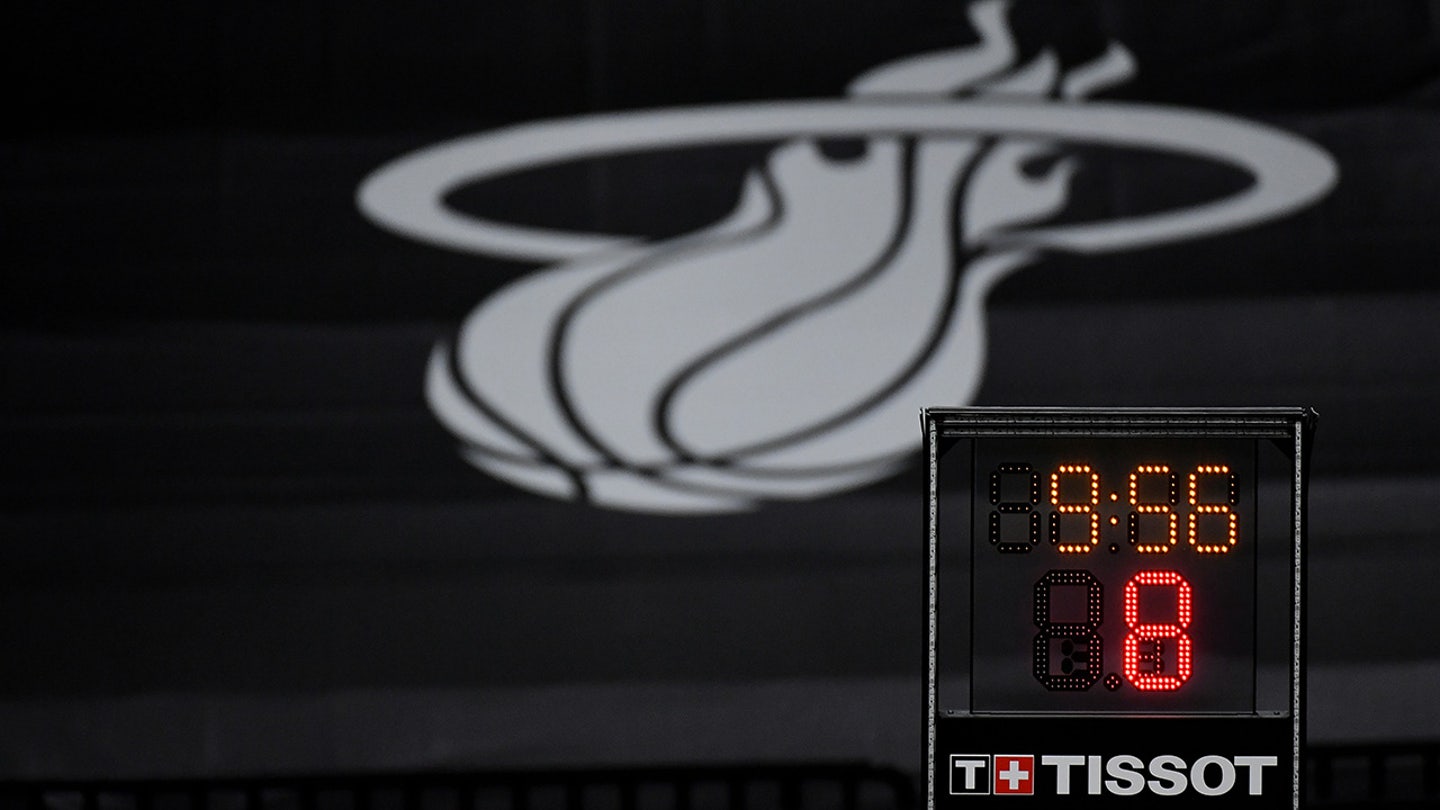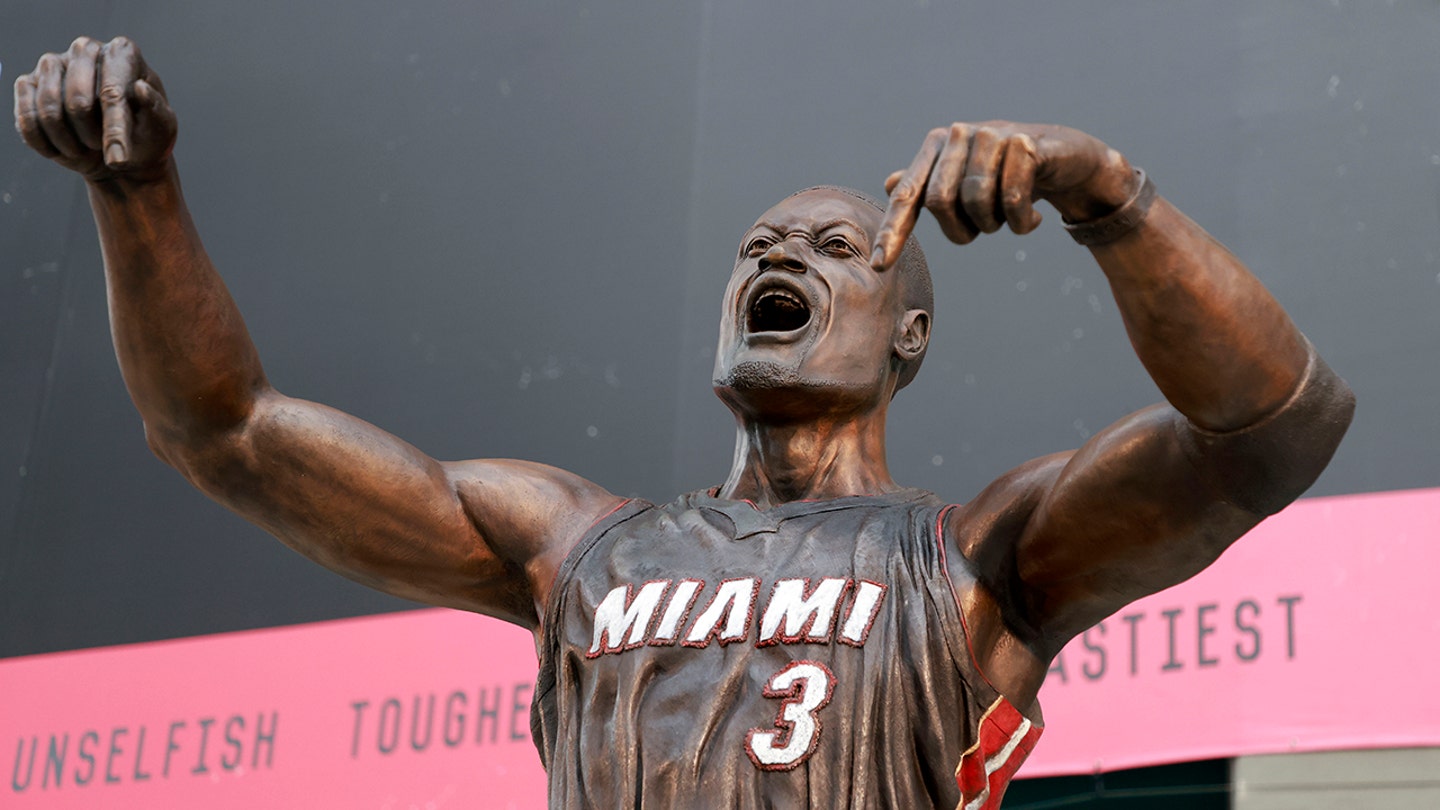NEWNow you can listen to news articles!
A former security guard for the Miami Heat has been charged with selling stolen jerseys and memorabilia worth up to $2 million, as announced by the Southern District of Florida U.S. Attorney’s office on Tuesday.
Marcos Thomas Perez, 62, of Miami, was charged with transporting and transferring stolen goods in interstate commerce.
View of the NBA logo on a backboard before the game between the Houston Rockets and the Miami Heat at Toyota Center on April 5, 2024 in Houston, Texas. (Troy Taormina/USA TODAY Sports)
Perez, a retired 25-year veteran of the City of Miami Police Department, worked as a security officer with the Miami Heat from 2016 to 2021 and then as an NBA security employee from 2022 to 2025, according to a Department of Justice press release.
Perez had access to a secured equipment room that stored game-worn jerseys and memorabilia intended for display in a future Miami Heat museum.

A detailed view of the shot and game clock in front of the tarp with the Miami Heat logo covering the seats in the arena during the second half between the Miami Heat and the Milwaukee Bucks at American Airlines Arena on Dec. 29, 2020 in Miami, Florida. (Jasen Vinlove/USA TODAY Sports)
Allegedly, Perez stole over 400 game-worn jerseys and other items from the equipment room and sold them on various online platforms. He reportedly sold a Miami Heat jersey worn by LeBron James during the NBA Finals for $100,000, which later fetched $3.7 million at a Sotheby’s auction.
Law enforcement executed a search warrant at Perez’s residence on April 3 and recovered about 300 stolen game-worn jerseys and memorabilia. The Heat confirmed that the items had been stolen from their facility.

A general view of the new Dwyane Wade statue in front of the Kaseya Center. (Rhona Wise/Imagn Images)
According to the charging document, Perez sold the stolen items to online brokers, generating approximately $2 million over three years by shipping them across state lines at discounted prices.
The Associated Press contributed to this report.





